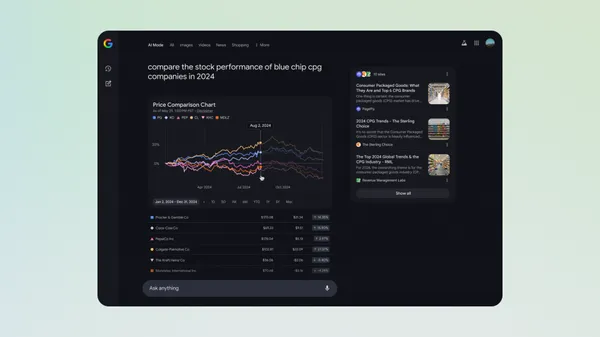From Data to Dollars: Startup Growth Through Analytics
Learn how data scientists transform raw information into revenue-generating insights, helping startups optimize operations, predict trends, and scale efficiently in competitive markets.
Converting Information into Revenue
Every successful startup generates massive amounts of data—from customer interactions and website traffic to sales transactions and operational metrics. However, raw data alone doesn't drive growth; it's the intelligent analysis and application of that data that creates competitive advantages and generates revenue. When you hire data scientists, you're investing in professionals who can transform scattered information into strategic insights that directly impact your bottom line.
The journey from data to dollars isn't automatic. It requires skilled professionals who understand both analytical techniques and business strategy. Data scientists serve as translators between the technical world of algorithms and models and the practical world of business decisions and revenue generation.
Modern startups that succeed at scale have mastered this translation process. They've learned to see data not as a byproduct of their operations but as a strategic asset that can be leveraged for competitive advantage.
The Revenue Impact of Data Science
How do data scientists increase startup revenue? Data scientists boost startup revenue by optimizing pricing strategies (10-20% revenue increase), improving customer lifetime value through retention models (25% increase in CLV), identifying upselling opportunities (15% revenue growth), and reducing operational costs through efficiency analysis (20-30% cost reduction).
The financial impact of hiring data scientists extends across multiple business functions. From direct revenue optimization to cost reduction and efficiency improvements, these professionals provide measurable returns on investment that justify their compensation and resources.
Customer Lifetime Value Optimization
Understanding the long-term value of customers is crucial for sustainable startup growth. Data scientists can calculate customer lifetime value with precision, identify factors that increase CLV, and develop strategies to maximize the revenue generated from each customer relationship.
This analysis goes far beyond simple purchase history to include engagement patterns, support interactions, and behavioral indicators that predict future value. When startups hire data scientists with expertise in customer analytics, they gain the ability to make more informed decisions about customer acquisition costs and retention investments.
Retention Strategy Development
Keeping existing customers is typically more cost-effective than acquiring new ones. Data scientists can identify early warning signs of customer churn and develop intervention strategies that preserve valuable relationships and maintain steady revenue streams.
Dynamic Pricing and Revenue Optimization
Traditional pricing strategies often leave money on the table by failing to account for demand fluctuations, competitive dynamics, and customer willingness to pay. Data scientists can develop sophisticated pricing models that optimize revenue based on real-time market conditions and customer behavior patterns.
These dynamic pricing strategies can significantly impact startup profitability, especially in markets where demand varies by time, location, or customer segment. Companies that hire data scientists with pricing expertise often see immediate improvements in revenue per transaction.
Market Segmentation for Pricing
Different customer segments have different price sensitivities and value perceptions. Data scientists can identify these segments and develop tailored pricing strategies that maximize revenue from each group while maintaining competitive positioning.
Sales and Marketing ROI Enhancement
Marketing spend represents a significant portion of most startup budgets, making optimization critical for sustainable growth. Data scientists can track the performance of every marketing channel, identify which campaigns generate the highest return on investment, and optimize budget allocation for maximum impact.
This analytical approach to marketing extends beyond simple attribution to include sophisticated models that account for the customer journey complexity and the interplay between different marketing touchpoints.
Lead Scoring and Conversion Optimization
Not all leads are created equal. Data scientists can develop scoring models that identify which prospects are most likely to convert, enabling sales teams to focus their efforts on the highest-value opportunities.
Operational Efficiency and Cost Reduction
Revenue growth is only one side of the profitability equation. Data scientists also help startups reduce costs by identifying operational inefficiencies and recommending process improvements that maintain quality while reducing expenses.
These efficiency gains compound over time, creating more resources that can be reinvested in growth initiatives. Startups that hire data scientists often discover cost-saving opportunities that weren't apparent through traditional analysis methods.
Supply Chain and Inventory Optimization
For startups with physical products, inventory management can significantly impact cash flow and profitability. Data scientists can optimize inventory levels, predict demand patterns, and reduce carrying costs while maintaining service levels.
Product Development and Feature Prioritization
Understanding which product features drive user engagement and revenue is crucial for resource allocation. Data scientists can analyze user behavior data to identify which features are most valuable to customers and which development priorities will have the greatest business impact.
This data-driven approach to product development helps startups avoid building features that customers don't want while focusing resources on capabilities that drive growth and revenue.
User Experience Optimization
Small improvements in user experience can have significant impacts on conversion rates and customer satisfaction. Data scientists can identify friction points in the user journey and recommend optimizations that improve both user experience and business metrics.
Market Expansion and Growth Opportunities
Identifying new market opportunities requires sophisticated analysis of market conditions, competitive landscapes, and customer needs. Data scientists can analyze market data to identify underserved segments and evaluate the potential return on investment for expansion strategies.
When you hire data scientists with market analysis expertise, you gain the ability to make informed decisions about geographic expansion, new product categories, and strategic partnerships based on data rather than intuition alone.
Competitive Intelligence and Positioning
Understanding competitive dynamics is crucial for positioning and pricing decisions. Data scientists can monitor competitor activities, analyze market share trends, and identify opportunities to gain competitive advantages through strategic positioning.
Financial Planning and Investment Strategy
Accurate financial forecasting is essential for startup success, particularly when seeking investment or planning for rapid growth. Data scientists can create sophisticated financial models that account for multiple variables and scenarios, providing founders with realistic projections and risk assessments.
These models help startups make informed decisions about hiring, capital expenditures, and growth investments while maintaining financial stability and meeting investor expectations.
The ability to present data-driven financial projections also enhances credibility with investors and partners, demonstrating that growth plans are based on analytical rigor rather than optimistic assumptions alone.










































































![iOS 18 Adoption Reaches 82% [Chart]](https://www.iclarified.com/images/news/97512/97512/97512-640.jpg)
![Apple Shares Official Trailer for 'The Wild Ones' [Video]](https://www.iclarified.com/images/news/97515/97515/97515-1280.jpg)






























































































































































































































![[The AI Show Episode 151]: Anthropic CEO: AI Will Destroy 50% of Entry-Level Jobs, Veo 3’s Scary Lifelike Videos, Meta Aims to Fully Automate Ads & Perplexity’s Burning Cash](https://www.marketingaiinstitute.com/hubfs/ep%20151%20cover.png)


































































































































































![[DEALS] FileJump 2TB Cloud Storage: Lifetime Subscription (85% off) & Other Deals Up To 98% Off – Offers End Soon!](https://www.javacodegeeks.com/wp-content/uploads/2012/12/jcg-logo.jpg)




















-0-8-screenshot.png?width=1920&height=1920&fit=bounds&quality=70&format=jpg&auto=webp#)
.jpg?width=1920&height=1920&fit=bounds&quality=70&format=jpg&auto=webp#)



































































